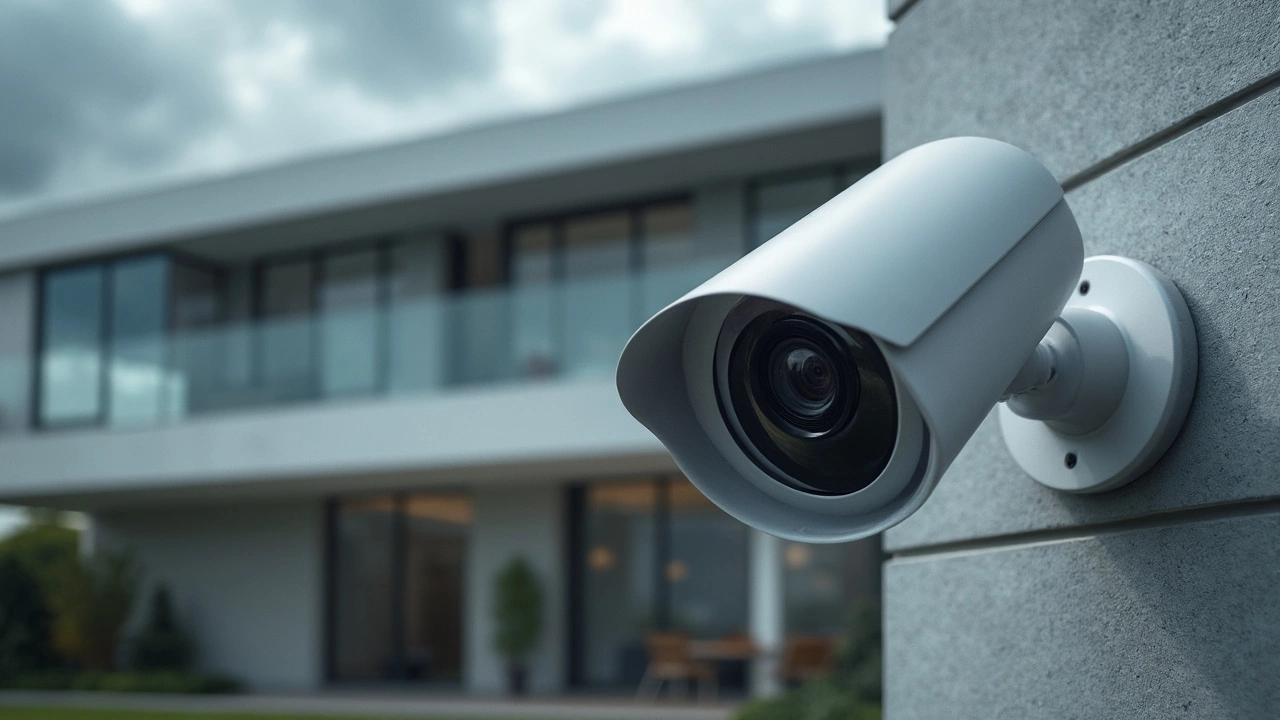Have you ever been in that awkward situation where your WiFi decides to take a nap just when you're counting on your CCTV to keep an eye on things? It's like the universe laughing at your expense. But does your security really pack up and leave, or does it have its own clever ways of keeping watch?
If your CCTV is wireless, the assumption might be that it's entirely dependent on WiFi. But guess what? A lot of these systems have tricks up their sleeves. Dive in with me today as we delve into how these gadgets work without WiFi, tackle the myths, and share some handy tips to keep you feeling safe, WiFi or not.
- Understanding Wireless CCTV Systems
- How CCTV Works Without WiFi
- Advantages of Non-WiFi CCTV
- Tips for a Reliable Security Setup
Understanding Wireless CCTV Systems
When we talk about wireless CCTV systems, we're not just talking about fancy cameras with no strings attached. These nifty gadgets use wireless technologies to send video to a nearby storage device or directly to the cloud, rather than relying on traditional cable connections. But here’s the deal—"wireless" doesn't mean they're entirely WiFi-dependent.
Most wireless CCTV cameras still require a power source. Yep, unless they’re battery-operated, you'll see them plugged into an outlet. The “wireless” part usually refers to how they transmit video and audio signals. They can use WiFi, but many also offer alternatives like cellular networks or local storage, so they don't ditch you if the WiFi flakes out.
A key point about these systems is their flexibility compared to wired cameras. Changing the location of a camera without rewiring is just one less hassle to deal with, which is a big win if you like rearranging things like Maeve does with our furniture every few months.
Now, not to geek out too much, but here's a cool fact: Did you know that the average lifespan of a wireless CCTV system is around seven to ten years? That’s a decent chunk of time to feel secure without constantly upgrading your tech. Plus, with regular software updates, these systems can keep up with new security features without needing to swap the hardware.
One potential downside? The startup costs can be slightly higher than traditional wired systems, but the long-term savings on installation and maintenance can make it worth the investment. Ultimately, if you're weighing convenience and modern features, wireless CCTV systems pack a pretty solid punch.
How CCTV Works Without WiFi
So, you've got a fancy wireless CCTV setup, and the WiFi suddenly bails on you. Now what? Rest easy—your security system may not be completely down for the count. Here's the scoop on how these systems manage to keep chugging along.
Many CCTV cameras come with a nifty feature: a built-in storage system. This means they can keep recording everything onto a microSD card or internal storage, even if the WiFi's taking a coffee break. So, while you might not get the live feed on your phone, the camera's still doing its job in the background.
Another common setup is a local storage device, like a Network Video Recorder (NVR), which is a bit like a DVR for security cameras. These record everything happening across your connected cameras. The good news? As long as your cameras and NVR are powered, they'll continue capturing video, even without WiFi. The footage might sit there quietly until your internet's back, but at least it's safe and sound.
Some cameras also send alerts and store a limited amount of footage on the cloud as a backup, but that's typically more reliable with an internet connection. However, in situations where steady internet access is iffy, there are solutions that don’t involve cloud reliance. Solar-powered cameras and battery-powered options offer flexibility without strict dependence on WiFi. It’s a bit like having a generator when the power goes out.
Given these options, ensuring your security doesn't hinge solely on WiFi is smart. Consider adding external backup storage or investing in a setup with more autonomous features to keep everything running smoothly.

Advantages of Non-WiFi CCTV
So, why would you want a CCTV system that doesn't rely on WiFi? Imagine this: a power outage hits or your internet gets shaky, and your security system is still chugging away without a hiccup. That's the peace of mind a non-WiFi CCTV can offer.
First off, reliability is a huge plus. Internet connections can be unpredictable, and if you live in an area where WiFi signals play hide and seek, relying heavily on them for your security isn't ideal. Non-WiFi CCTVs often record locally, ensuring that every critical detail is captured whether or not the internet is holding up.
Another win for non-wifi setups is enhanced security against cyber threats. With fewer or no internet connections to your cameras, snooping hackers have less opportunity to sneak into your feed. This means you get a safer surveillance solution without sweating over potential digital intrusions.
Now, let's talk about bandwidth. If you've got an army of devices all fighting for WiFi, streaming security footage can slow things down. By not constantly relying on WiFi, non-WiFi systems help keep your home network free for Netflix marathons and online gaming showdowns without interruptions.
Here's an interesting tidbit: Many non-WiFi cameras come equipped with longer battery lives. Because they're not wasting energy on sending signals over the web, they last longer, saving you the hassle of frequent charges or replacements.
In essence, non-WiFi CCTV systems provide a solid, dependable backup and complement your wireless needs. They're like the best of both worlds, designed to keep you covered no matter what unpredictable curveballs life throws your way.
Tips for a Reliable Security Setup
Getting your security setup just right can feel like a game of whack-a-mole, especially when WiFi is in and out like an unreliable friend. But don't stress too much—there are plenty of ways to beef up your security system, even if your wifi is sipping a latte during peak security needs.
First things first, invest in a CCTV with local storage capabilities, like an SD card. With local storage, when your WiFi takes a break, your CCTV can still record everything locally. Later, once the WiFi is back, you can access those recordings remotely.
Consider battery or solar-powered cameras. They're lifesavers if you've got power outages. They keep the security rolling when traditional power sources fail. Just make sure to keep those cameras charged up or positioned where they can catch some rays.
- Choose a reliable backup power source, like a UPS (Uninterruptible Power Supply), to ensure your CCTV stays powered during outages.
- Place cameras strategically: Don’t just cover entry points; think about high-traffic areas and those shadowy corners too. That way, you’re not left with blind spots.
- Update your software regularly. Just like smartphones crave updates, your security systems do too. These updates patch security holes, keeping the nasty stuff at bay.
Pro Tip: It’s handy to have a couple of dummy cameras. They cost less and can deter those pesky intruders. Positioned correctly, they give baddies something to think about without emptying your pockets.
It's all about having eyes on your property one way or another, WiFi or no WiFi.

